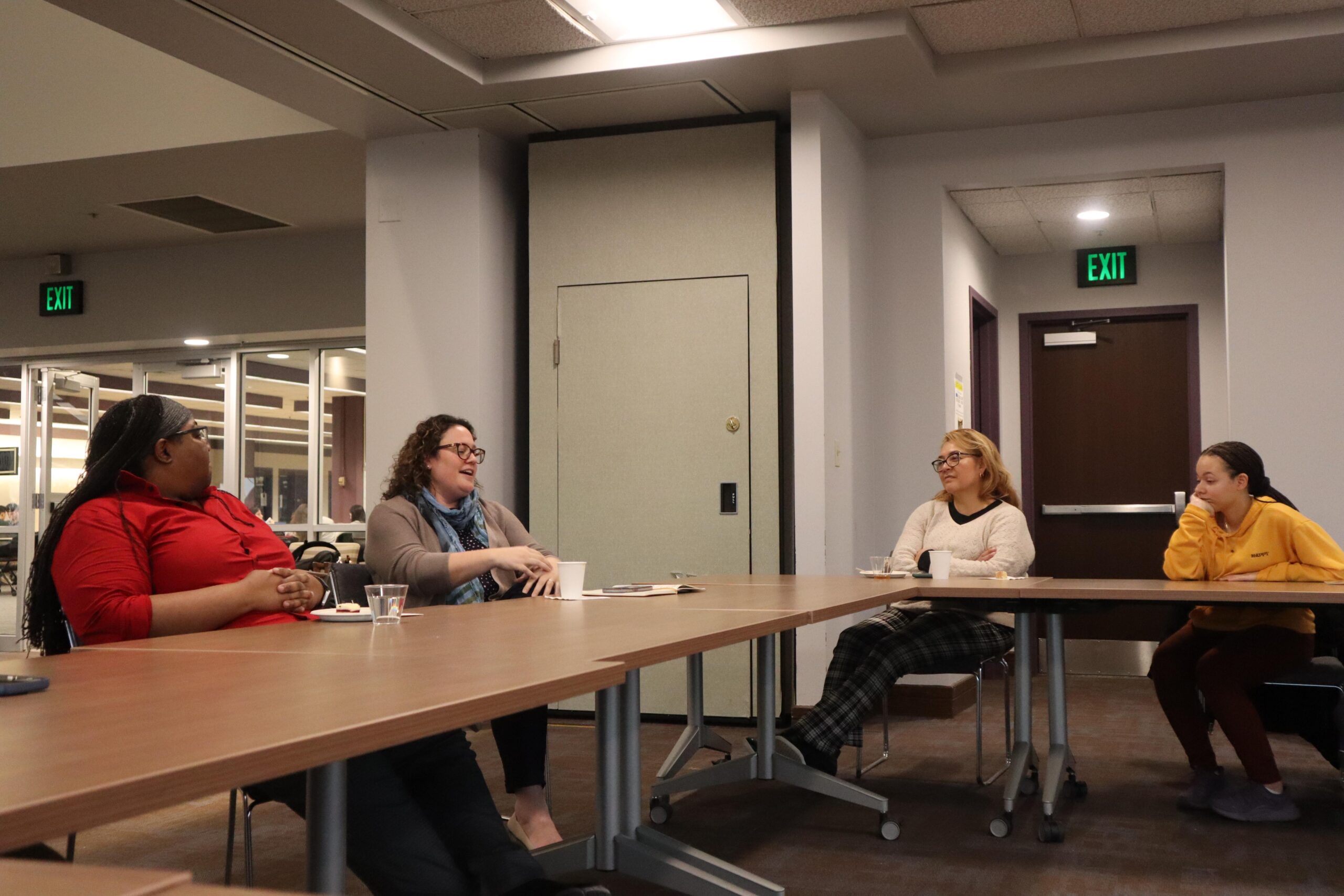Monique Dawes and Gretchen Macht shared their stories of resilience, identity and advocacy in the fields of STEM on Wednesday, Feb. 7, as part of the recurring event series, “Spilling the Tea.”
Dawes, an occupational therapist and assistant professor at Johnson & Wales University, kicked off the evening by delving into her journey from being a travel therapist living in Hawaii to a professor in the Ocean State. In particular, she discussed the role of mentorship and the program she established, which aims to foster inclusive environments for marginalized communities within STEM.
“[Students] have been told by advisors, ‘Oh, your GPA isn’t good enough. You’re never going to get into grad school,’ and I tell them, ‘Absolutely not. You absolutely will,’” Dawes said. “Some of our students who end up in our program came in with a 3.0 minimum to apply and they end up being our best students.”
Dawes continued by mentioning that the true indicator for a potential graduate student candidate is their motivation to continue their interest in learning the subject.
“It’s about that passion and your desire to actually want to learn, especially at a graduate school level,” Dawes said.
Macht, an associate professor of industrial and systems engineering at URI, opened by focusing on the practice of leveraging engineering to sustain democratic voting ideas. She is the director of the Voter OperaTions and Election Systems laboratory – an organization that utilizes engineering approaches to tackle current and future obstacles in election science. Since 2017, the group has helped 37 million voters across the United States have better equitable access to elections.
This career pathway began with a phone call from the dean of engineering – one that led to a connection to former Rhode Island Secretary of State Nellie Gorbea, who requested her help with reforming the state’s election process, Macht said.
“I remember walking across that quad and knowing in the moment that everything in my life could change at that time, ” Macht said.
After a seven-minute phone call with Gorbea, Macht said she found a new focus for her research, and it was one that in her words, “changed her entire career.”
Amidst the triumphs shared around the table lay reminders of the systemic barriers that continue to hinder progress for women in STEM fields.
Both speakers shed light on the entrenched gender bias and disparities prevalent within STEM classrooms, speaking on the need for concerted efforts to foster inclusivity and representation. Dawes mentioned a need for greater recognition of the challenges faced by marginalized communities, underscoring the importance of having supportive mentors to help students realize their inner potential.
“I make students really take a look at who they are as people,” Dawes said. “Because when you really know your identity, then you can see value in yourself as just you being you.”
Macht mentioned the point of how being a woman in STEM is often a call to action, and to help support and inspire others around them.
“Being a woman in STEM means you are an advocate for change and whether you want that mantle or not,” Macht said. “It took me about 18 years to figure out that that mantle was mine.”
Dawes and Macht’s discussion points served as evidence to the objectives of identity, advocacy and personal growth in driving excellence within STEM fields.





